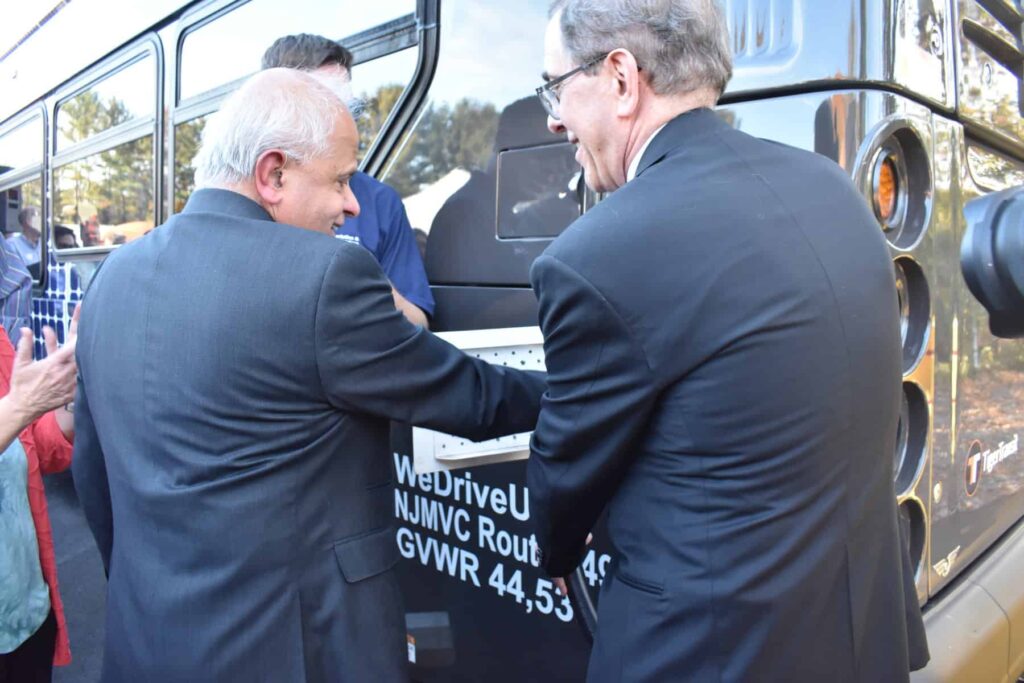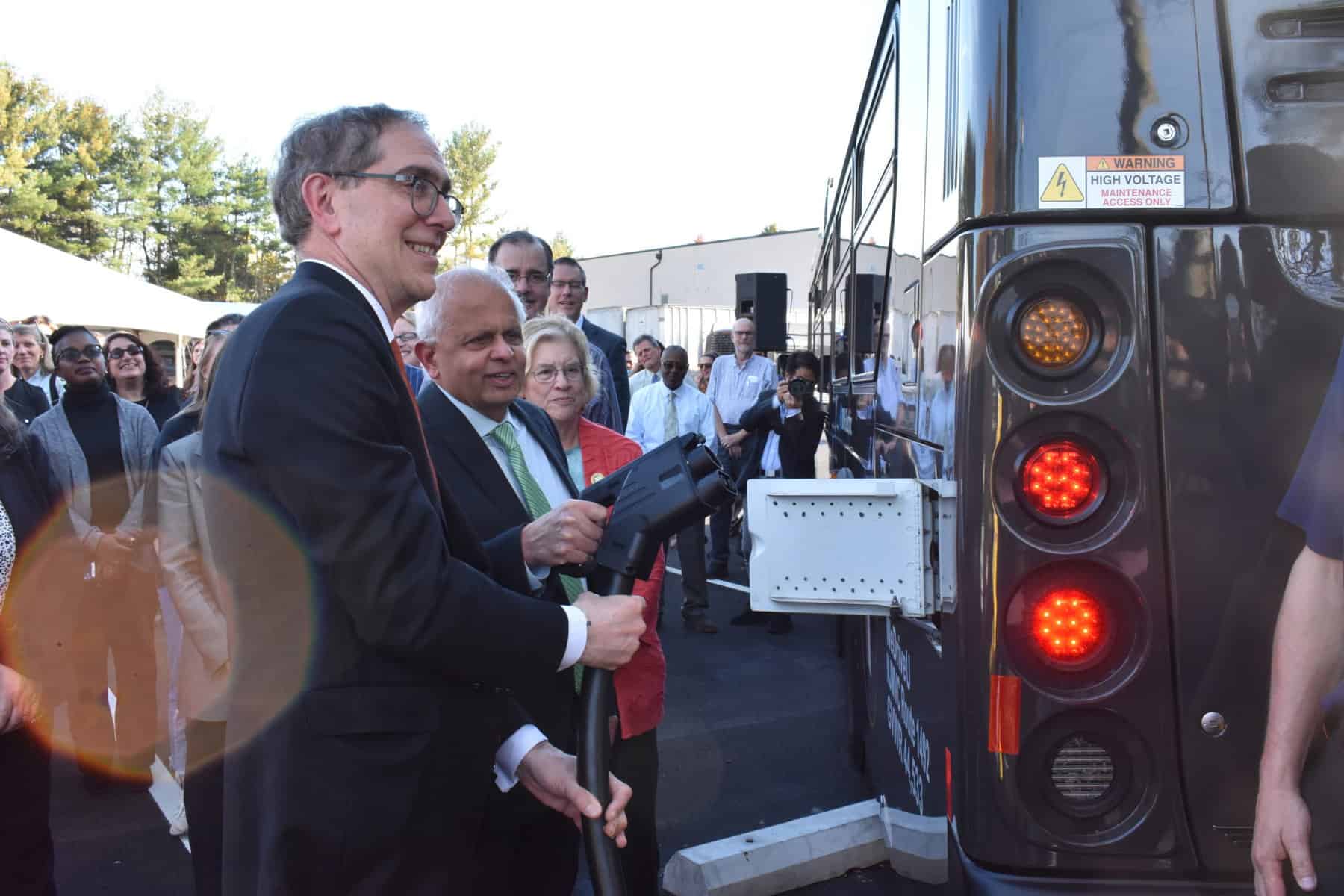Princeton University took another step towards achieving its goal of reaching net zero emissions by 2046 with the unveiling of a 17-bus electric fleet for TigerTransit.
The university presented some of the electric buses in a grand opening of the TigerTransit electric bus charging facility at 755 Alexander Road in West Windsor on Oct. 26.
“About a year ago, this was gravel, tumbleweeds, and a couple storage containers. Now today it is one of the largest electric transit vehicles charging facilities in the country,” said Charlie Tennyson, director of Transportation and Parking Services at Princeton University.
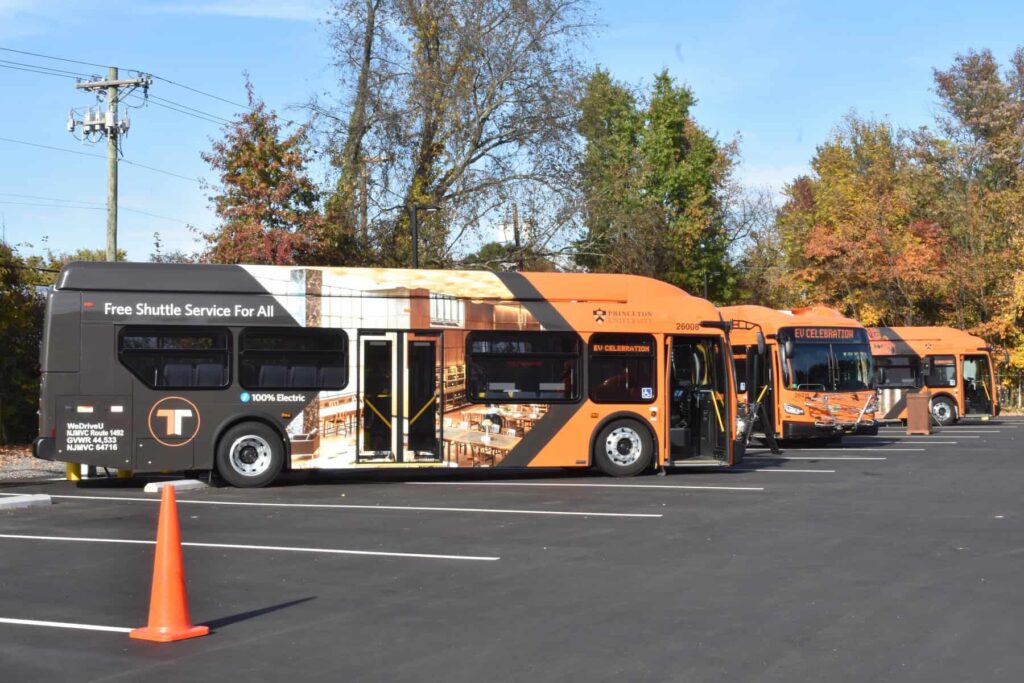
The university replaced its entire diesel fleet with electric buses.
“When you see these buses traveling around our campus carrying some of our 2,500 passengers a day up to class or visitors around facilities there is a team and operation behind that activity,” Tennyson said.
On the site of Alexander Road charging facility there is a brand-new operations base and 16 charging stations.
“This facility and these buses represent real progress in the areas of sustainability, equity and inclusion and technology. I’m grateful to everyone who helped get us to this day,” Princeton University President Christopher Eisgruber added.
“Your work supports the mobility needs of our growing campus and region and helps us achieve a milestone in our efforts towards net zero emissions.”
The charging facility on Alexander Road is one of two locations the buses can go to be fully charged.
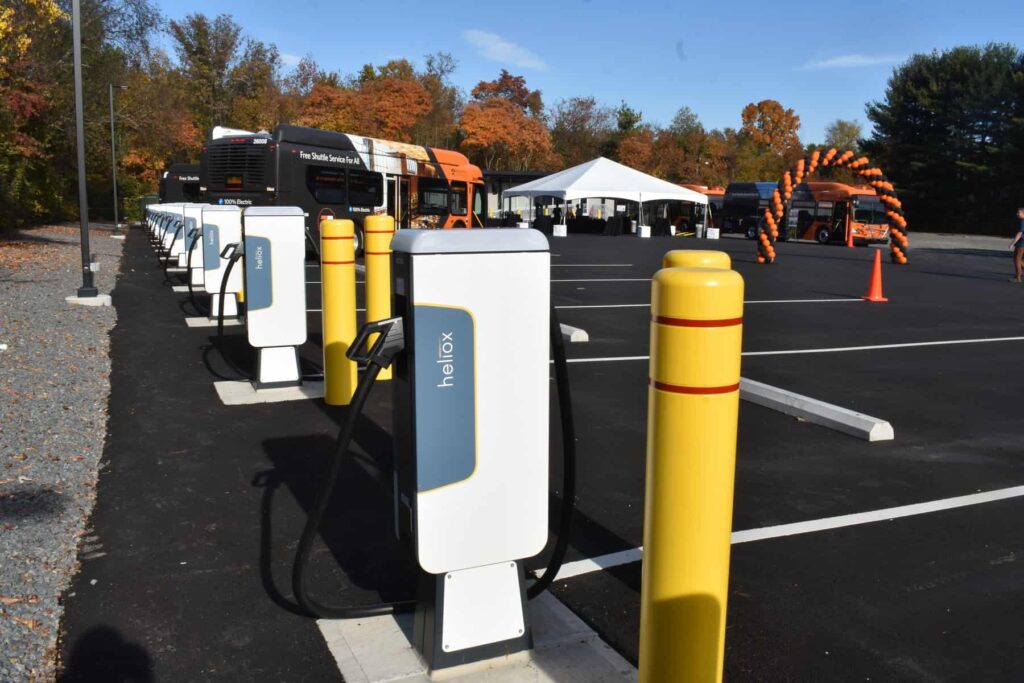
“This facility is meant to address exactly the change of weather that the world is experiencing and I could not be happier that it is located in West Windsor Township,” West Windsor Township Mayor Hemant Marathe said.
On the university’s main campus, Lot 20, is another location for the buses to charge.
The power source for the charging facilities comes from PSE&G.
For the buses to get to a full charge it can take 2.5 to four hours. It will take four hours to fully charge if two electric buses are charging at the same time.
A full charge can have a bus running for 12 hours or go between 180 to 200 miles. The run time and mileage can change with the climate and use of heaters.
Eisgruber noted that the new electric buses, which are currently in operation, advance the university’s campus sustainability goals in two important ways – the elimination of tailpipe emissions and Princeton’s commitment to carbon neutrality.
“[The buses] eliminate 500 metric tons of tailpipe emissions from the campus and local communities annually. Our air is cleaner because of this project,” he added.
“And they create visibility about University’s commitment to carbon neutrality as rolling billboards with relevant messaging that exemplify the changes we are pursuing as an institution and as a society.”
Each bus can handle 44 total passengers – seating 26 people and 18 people standing holding on to handgrips and handrails.
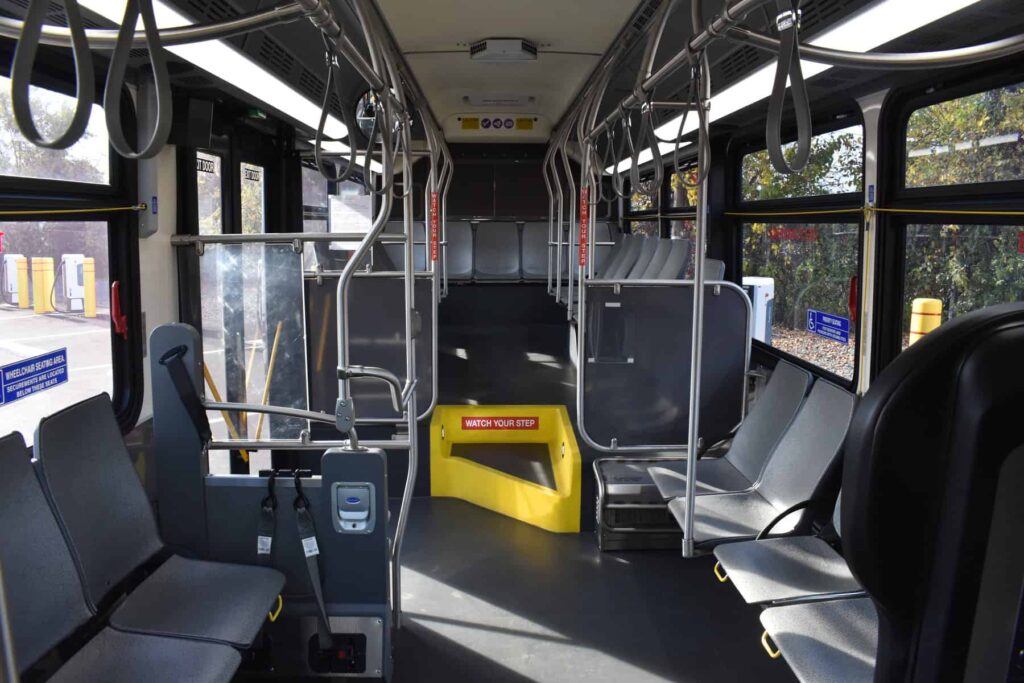
“TigerTransit has always been free and open to everyone not just university facility and students or staff,” Eisgruber said. “Now messaging directly on the vehicles amplifies this information by inviting everyone to ride.”
The buses have two wheelchair accommodations – one that is fully automated; electric heaters; individual USB ports for charging personal devices at seats on the bus; and also, a front-loading bicycle rack, which can hold up to three bikes.
